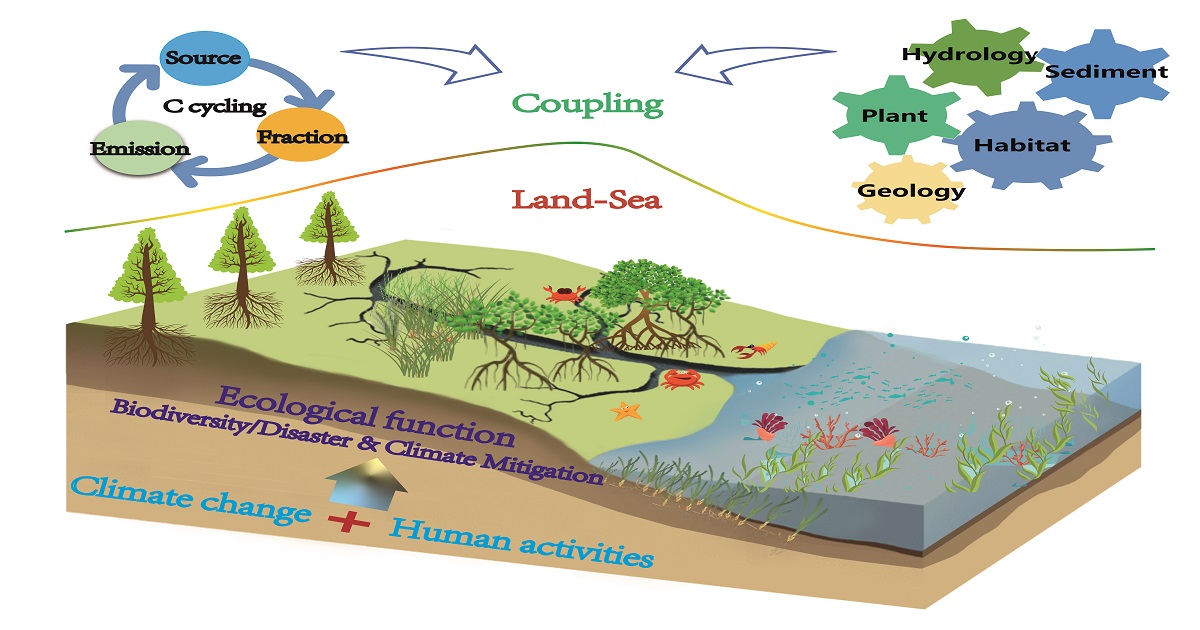Sustainable Management of Blue Carbon Ecosystems
A special issue of Sustainability (ISSN 2071-1050). This special issue belongs to the section "Environmental Sustainability and Applications".
Deadline for manuscript submissions: 31 October 2026 | Viewed by 361

Special Issue Editors
Interests: blue carbon; soil carbon; coastal sedimentation; river-estuary-coast continnum
Interests: blue carbon; carbon emission; coastal ecosystem restoration
Interests: marine geochemistry; wetlands; carbon cycles
Special Issue Information
Dear Colleagues,
Blue carbon ecosystems, including mangroves, salt marshes, seagrass meadows, macroalgae, and tidal flats, are critical allies in the fight against climate change, sequestering vast amounts of carbon and providing numerous co-benefits. However, these vital habitats are under increasing threat from human activities and environmental change. The sustainable management of these ecosystems is therefore paramount for long-term climate mitigation and ecological resilience.
This Special Issue is focused on consolidating cutting-edge research dedicated to the “Sustainable Management of Blue Carbon Ecosystems”. Its purpose is to create a comprehensive, interdisciplinary collection of work that advances our scientific understanding and informs practical, effective policy and conservation strategies. The scope will encompass original research and reviews on areas of interest that include, but are not limited to, the following topics:
- The biogeochemical mechanisms of carbon sequestration;
- Advanced methodologies for blue carbon calculation and stock assessment;
- Innovative techniques for successful ecosystem restoration;
- The valuation and mobilization of blue carbon capital;
- Predictive models for enhancing carbon sink potential.
This Special Issue will supplement the existing literature by bridging the gap between fundamental science and on-the-ground application. By integrating diverse perspectives—from ecology to economics—it will provide a holistic view of the challenges and opportunities in the field, offering actionable insights for researchers, policymakers, and coastal managers worldwide.
We look forward to receiving your contributions.
Dr. Yuan Li
Prof. Dr. Shuguo Lv
Prof. Dr. Siyuan Ye
Dr. Frida Sidik
Guest Editors
Manuscript Submission Information
Manuscripts should be submitted online at www.mdpi.com by registering and logging in to this website. Once you are registered, click here to go to the submission form. Manuscripts can be submitted until the deadline. All submissions that pass pre-check are peer-reviewed. Accepted papers will be published continuously in the journal (as soon as accepted) and will be listed together on the special issue website. Research articles, review articles as well as short communications are invited. For planned papers, a title and short abstract (about 250 words) can be sent to the Editorial Office for assessment.
Submitted manuscripts should not have been published previously, nor be under consideration for publication elsewhere (except conference proceedings papers). All manuscripts are thoroughly refereed through a single-blind peer-review process. A guide for authors and other relevant information for submission of manuscripts is available on the Instructions for Authors page. Sustainability is an international peer-reviewed open access semimonthly journal published by MDPI.
Please visit the Instructions for Authors page before submitting a manuscript. The Article Processing Charge (APC) for publication in this open access journal is 2400 CHF (Swiss Francs). Submitted papers should be well formatted and use good English. Authors may use MDPI's English editing service prior to publication or during author revisions.
Keywords
- blue carbon
- coastal ecosystems
- carbon sequestration
- climate change mitigation
- ecosystem restoration
- sustainable management
- tidal flats
- macroalgae
- seagrasses
- salt marshes
- mangroves
- carbon finance
Benefits of Publishing in a Special Issue
- Ease of navigation: Grouping papers by topic helps scholars navigate broad scope journals more efficiently.
- Greater discoverability: Special Issues support the reach and impact of scientific research. Articles in Special Issues are more discoverable and cited more frequently.
- Expansion of research network: Special Issues facilitate connections among authors, fostering scientific collaborations.
- External promotion: Articles in Special Issues are often promoted through the journal's social media, increasing their visibility.
- Reprint: MDPI Books provides the opportunity to republish successful Special Issues in book format, both online and in print.
Further information on MDPI's Special Issue policies can be found here.








